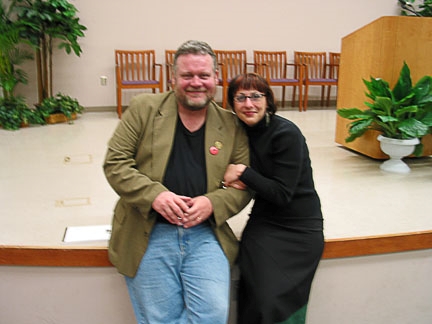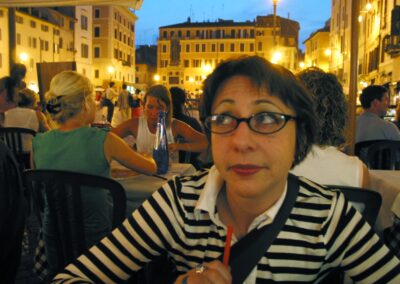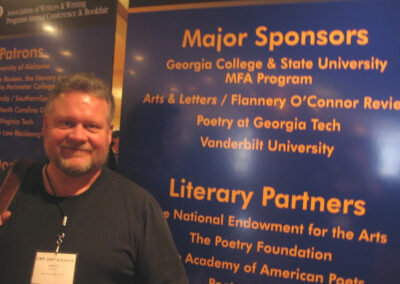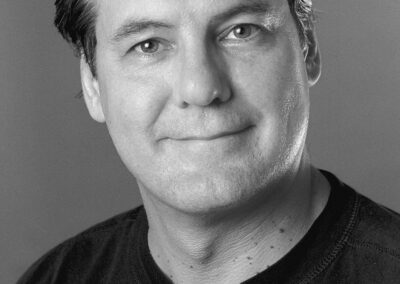With Gratitude – Martin Lammon

After 25 years, this is the final issue of Arts & Letters, which I founded in the spring of 1999. A decade ago, Laura Newbern succeeded me as editor. In my last issue (Fall 2014, #29), I wrote a farewell essay in which I addressed the history of the journal’s first 15 years. Interested readers can find a revised, shorter version on my personal website (www.martinlammon.com; search for “farewell”).
On this occasion, then, there is no need for me to write another “farewell.” At the end of that essay, I addressed readers I’d known who “long for stories, poems, essays, and other contemporary literature that will offer substance, satisfaction, and not just a way to kill time….” To those readers, I wrote: “None of this matters without you. After all these years, it’s high time I said thank you.”
On this occasion, then, I do not say farewell. Instead, again, I say thank you.
Thank you to the hundreds of contributors whose outstanding poems, stories, essays, interviews, reviews, artwork, and one-act plays fulfilled the editorial vision that shaped Arts & Letters. Thank you to the thousands of talented writers who submitted their work. I wish there’d been room to publish more.
Ten years ago, in my farewell essay, I wrote about the writers, accomplished and new, who helped make Arts & Letters a prominent national and international journal. With the journal coming to a close, I searched the archive of past issues. I saw names I knew well, others I knew a little, and many I did not know at all. Here, I want to single out two writers whose stories reflect what I hope Arts & Letters stood for. I did not know either of them when we published their work. One, I met later; one, I wish I had.
Deb Schwartz (pictured above with Martin Lammon at the 2004 A&L Prizes Reading) won the Arts & Letters fiction prize, and her story “Orrin in Exile” was published in the Fall 2004 issue (#12). When I called her on the phone, she was thrilled, not only for the $1,000 prize, but also, especially, because this was her first publication. Later, I found her personal website, where image files of all her rejection letters were on display. There, I saw the announcement “Deb is finally published,” with an image of our acceptance letter (yes, back then, we still mailed letters) and the caption “They liked me! They really liked me!” Her current website (www.debschwartz.net), describes her work in “Digital and Print Design,” but Deb writes that her “first love is short story fiction writing,” and lists The Kenyon Review, Gulf Coast, and Arts & Letters as journals in which she’s published.
Martin Wiley was published in Fall 2008 (Issue #20). I did not know him, so I searched the web to find out what I could. There, I found Wiley’s “Dissident Poet” website (www.martinwiley.com). As I learned more about his life and work, I found out his new book of poems When Did We Stop Being Cute was published by CavanKerry Press in 2023. And then I found this paragraph: “The first writing I was paid for was an essay called ‘The King of Rock,’ in Arts & Letters. It is a creative non-fiction piece, about the ways that hip-hop, especially Run-DMC, changed how I saw myself, and how I wanted to be seen.” In my farewell essay, I’d written about how important it was that we paid our contributors. How satisfying it was to learn that Arts & Letters was home to this writer’s first paid publication.
After 25 years, it is impossible to thank all of the hundreds of writers, editors, students, administrators, staff, family and friends who have contributed to the livelihood of Arts & Letters.
Thank you to David Muschell, my colleague at the very beginning of this venture, who ensured that Arts & Letters was among the few literary journals to publish (through issue 29) and produce (until just recently) outstanding one-act plays. Our drama prize was unique among literary journals, and David Muschell enlisted a “who’s who” among playwrights to judge the prize, including Horton Foote, John Guare, Tina Howe, Arthur Kopit, and August Wilson.
Thank you, of course, to Laura Newbern for taking over the editorship of the journal, and to all the faculty and students, past and present, who have sustained the journal’s high standards.
Thank you to the graduate students who served as readers, assistant editors, and as our managing editors. Thank you to those students and staff who served as administrative assistants to the journal, especially to Laura Jo Spottiswoode (Caron), hired in the fall of 2014, who cared so much for the journal and our students. Sadly, she passed away in 2023, not long after she’d retired from the college.
I am keenly aware that there are so many others deserving to be recognized by name, and in the years to come, I hope that I will have opportunities to thank them more fully and more personally.
I look forward to whatever next new venture my friends and colleagues at Georgia College will pursue, wherever their hearts and ambitions may take them. I hope, in some way, I may lend a hand, even if it is only to applaud them, wholeheartedly, with both.



